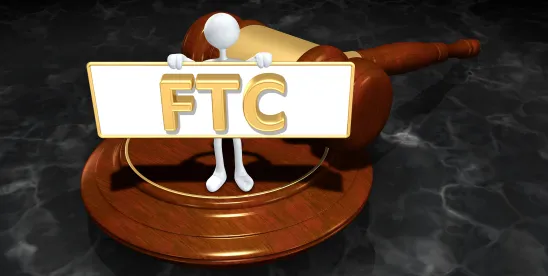Unauthorized sellers can damage your brand in many ways. One way is in relation to customer reviews of your products. Unauthorized sellers provide poor customer service, use poor or incorrect content and marketing assets, and lack knowledge and expertise about your products, which can lead to negative consumer reviews of your products that harm your brand.
But there is another element to unauthorized seller reviews that many do not talk about—consumer reviews of the unauthorized sellers themselves.
Many unauthorized sellers are working to manipulate customer reviews to make them appear to be higher-rated sellers on Internet marketplaces. We have seen numerous instances where an unauthorized seller attempts to bribe, coerce, or threaten consumers to remove or revise an existing review. More recently, we have seen unauthorized sellers taking advantage of Internet marketplace loopholes and successfully removing truthful negative reviews by improperly claiming they relate to a “fulfillment issue.” This practice often allows an unauthorized seller to appear as a top-rated seller when, in reality, they have a myriad of negative feedback that is not being counted against their seller rating.
The Federal Trade Commission (FTC) has announced a final rule aimed at combating the increasingly prevalent practice of selling or purchasing fake online reviews and testimonials for goods or services. This is a significant development that will help combat the improper practices used by unauthorized sellers.
While these practices have always been illegal under relevant state unfair and deceptive practice laws, the final rule is aimed at increasing deterrence by allowing courts to impose civil penalties against violators and to seek orders requiring violators to compensate consumers for the harms caused by their conduct. We believe this will help address numerous fake review issues, including unauthorized reseller review manipulation.
The FTC’s final rule takes aim at the following:
Purchasing Reviews
In addition to prohibiting the outright purchasing of reviews, the rule prohibits a business from providing compensation or other incentives in exchange for a review. The rule also prohibits misrepresentations regarding celebrity endorsements, such as falsely claiming that a review or testimonial is based on the celebrity’s actual experience with a given product or service.
Fake or False Reviews
The rule prohibits artificial intelligence or bot-generated reviews from individuals who do not actually exist or where the reviewer has no experience with the subject matter of the review.
Insider Reviews and Consumer Testimonials
Reviews or testimonials from business insiders are also prohibited, unless their connection with the business is clearly disclosed. The rule also includes disclosure and other requirements when a business seeks reviews from immediate relatives, employees, or agents of the business.
Company-Controlled Review Websites
Given the increasing consumer reliance on independent, third-party review websites, the rule makes it unlawful for a business to falsely represent that a website or other company-controlled business provides independent reviews or testimonials when they, in fact, are influenced and controlled by the business.
Review Suppression
It will be forbidden to use unfounded legal threats, physical threats, or other acts of intimidation to either prevent the posting of a review or to coerce the removal of an existing review. Notably, the rule also prohibits a business from misrepresenting that reviews displayed on a website accurately reflect all or most customer reviews when other negative reviews have been suppressed by the business.
Fake Social Media Influence
In addition, the rule prohibits the sale or distribution of fake “indicators of social media influence” (such as follower or subscriber counts, post shares, or likes) that could then be used to misleadingly increase the perceived significance of a given review or testimonial. This aspect of the rule could have a large impact on the social influencer industry.
As noted by FTC Chair Lina M. Khan, “By strengthening the FTC’s toolkit to fight deceptive advertising, the final rule will protect Americans from getting cheated, put businesses that unlawfully game the system on notice, and promote markets that are fair, honest and competitive.”
The final rule will go into effect 60 days after being published in the Federal Register, likely later this year.
It is important that consumers can rely on accurate seller feedback and comments. We hope the final rule will be another arrow in a brand’s quiver to help protect a brand from the harm caused by unauthorized sellers.






 />i
/>i
